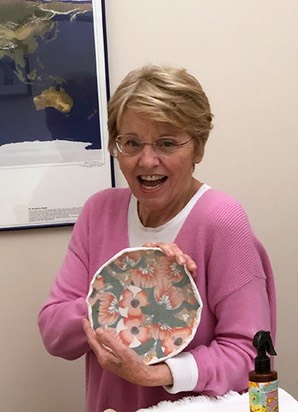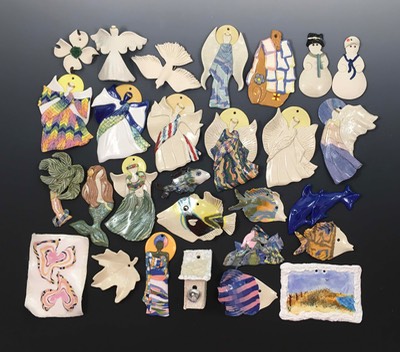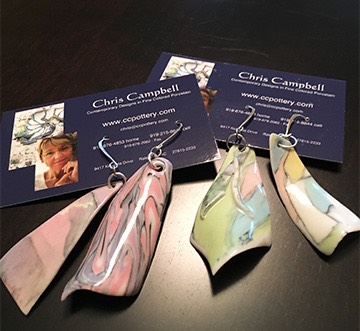SELLING POTTERY WHOLESALE
Wholesale is a great way to sell your work if you are ready. Here are some of the pros and cons to help you decide.
PROS
You get to control your income because you set your price.
You do not have to bother with one-time retail sales unless you choose to.
You can plan your work schedule rather than being at the mercy of crafts fair judges, bad weather and fickle crowds.
You get paid for your work usually within 30 days.
CONS
You have to know enough about your costs to set a price for your work that gives you a profit and giving the gallery enough room to price it for their profit.
You have a produce a solid LINE of work that hits key price points.
You have to guarantee a consistent level of quality.
You have to deliver what you promised, when you promised to.
Now to the MYTHS about wholesale.
1. “I loose 50% of the price if I don’t sell it myself.”
No, you make 100% of your asking price. This price should cover your costs and leave room for profit. The Gallery’s asking price covers the costs of selling the work, which is something you don’t have to do anymore.
2. “Still, when I sell retail I get to keep all of the money.”
Unless you live in a situation where someone else pays all the utility and rent bills and is kind enough to pay for your computer, your car, your booth fees, your set up …etc …. you are never keeping all of the money. Selling your own work costs money.
3. “I don’t make enough work to consider wholesale.”
Remember where I wrote that you have to deliver what you promised, when you promised it … well, that can be 20 pots or 200 pots. You are in charge.
So, lets say you decide to take the plunge. What do you need to do?
Decide on your line of work covering some price points.
A LINE OF WORK: These are pieces that you do well. They are well designed and are shapes that you could stand to make over and over again. Shapes you can explore and progress with. This line of work should look good together on a shelf.
PRICE POINTS: Your work should cover at least a couple price points so your Gallery can sell it to different customers. Galleries are more than happy to tell you the price points that sell best for them since they indeed do want to make sales.
What else??
You need to price your work before you contact Galleries because price will be their first question.
Other questions might be …
“What is your minimum order?”
“How long would it take to get more?”
“Do you accept special orders?”
These three questions are all about your production ability. You have to figure out for yourself how much work you can produce. Start with a month remembering to leave time for life ... appointments, errors, failures, distractions of all types that realistically take you away from your cycle.
“What are your credit terms?”
For wholesale most ask for first order prepaid, future orders net 30 with some credit references. Many galleries will pay by credit card because they want to accumulate benefits, so be prepared to accept credit card payment.
“Whom else do you sell to in the area?”
Be 100% honest as they will find out anyway. Any cross over issues can be solved by choosing to sell only certain items in each store. Resist giving anyone an exclusive until they show YOU they can sell your work.
“What is your best seller?”
“What other colors does it come in?”
“Do you make all your own work?”
“What are your guarantees on this pottery?”
I recommend you guarantee your work 100%. Don't give anyone a reason to say NO to you buy hedging here. A piece replaced here and there is worth the trust.
“What else do you make?”
“Do you sell online or from your own studio?”
Honesty time again. If you sell from your studio/website you MUST double your retail price. You cannot be the Gallery's competitor on an uneven playing field. You should advise them if you will be selling in a nearby Crafts festival, or Art fair and perhaps offer to have their postcards or information in your booth.
“How long have you been in business?”
“Will you send us samples?”
Remember, you and your Galleries are PARTNERS so treat them with respect. Of course, they too should treat you with the same respect.



